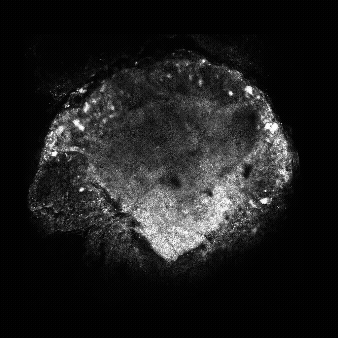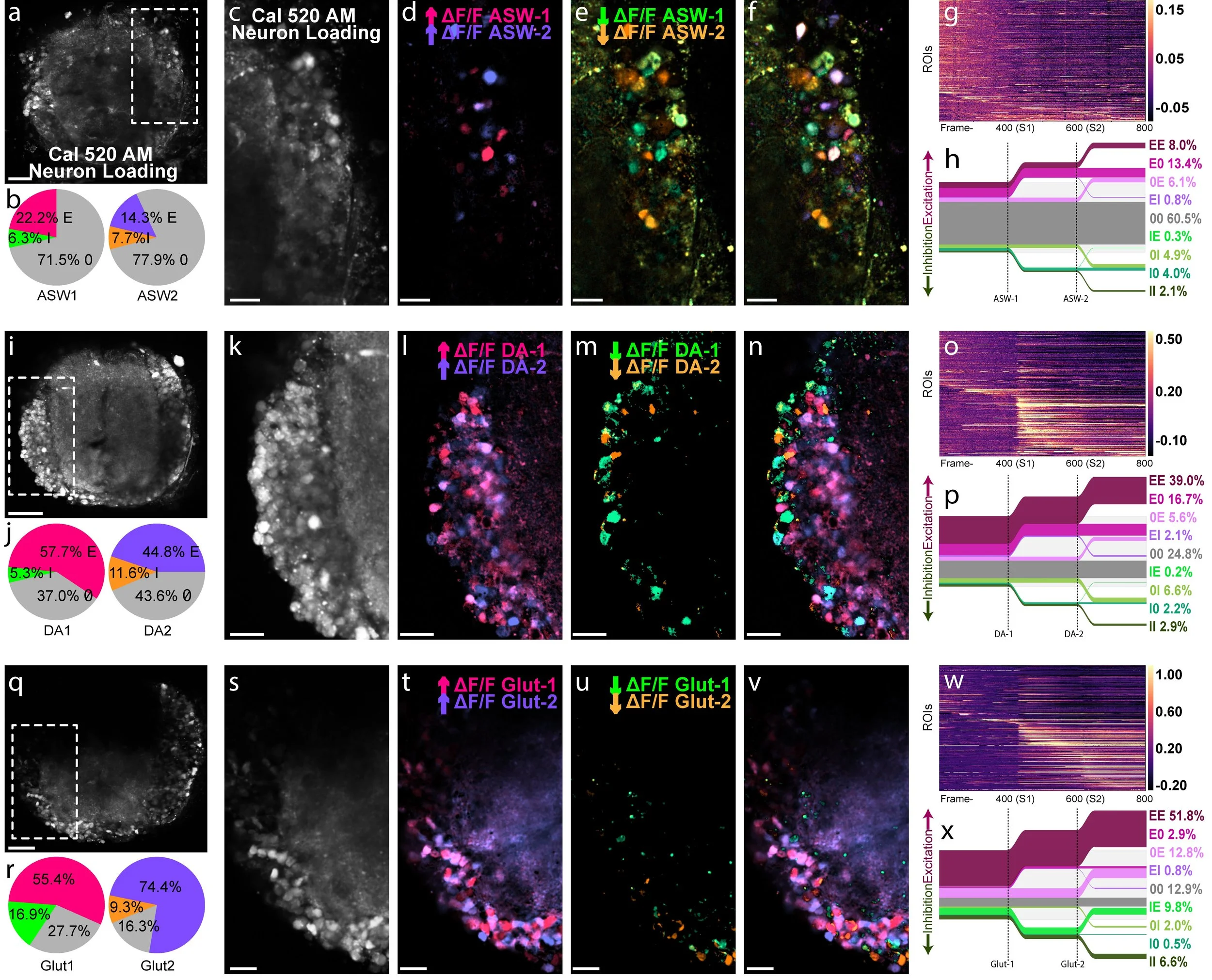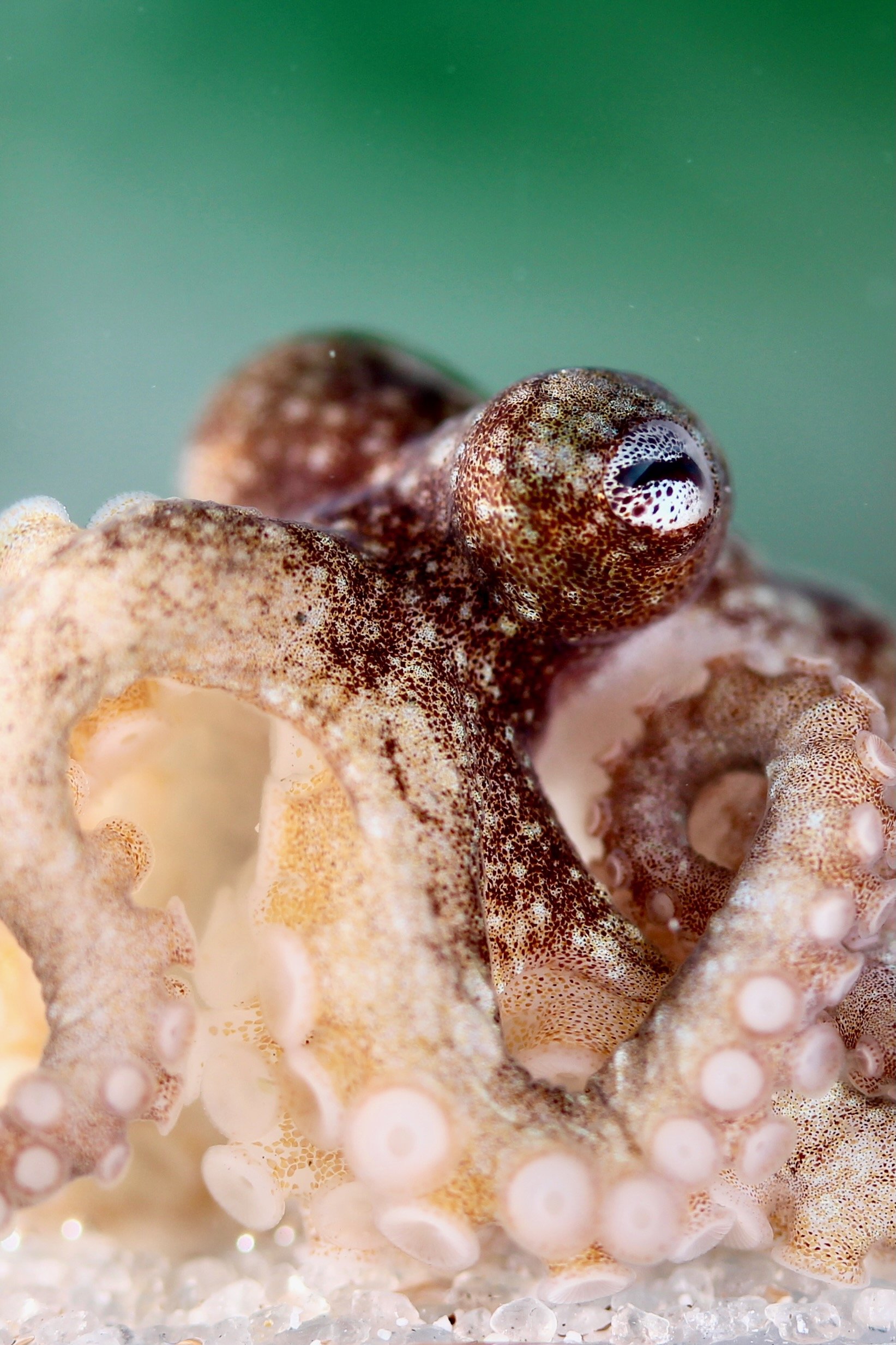The lab’s newest manuscript is available to view on Biorxiv while it makes its way through peer review. This study, led by postdoctoral fellow Gabrielle Winters-Bostwick, uses calcium imaging in the axial ganglia to record neurons firing in response to application of neurotransmitters and neuromodulators secreted from cells mapped in a previous study from our lab. This manuscript, titled “Neurochemically-evoked activity in slice preparations of the octopus arm nerve cord”, is the first to show populations of cells responding to exogenous neurochemicals in slices. Previously we had demonstrated that cells in the arm nerve cord were not organized or clearly laminated according to molecular identity, in contrast to cells in the optic lobe. Here, we extend that finding to show that there is also no evidence for functional organization; i.e., cells responding to specific neurotransmitters are not localised to clusters or lamina either. This finding supports an emerging body of evidence from our lab and others that the arms of the octopus - the most complex example of distributed network control known - do not conform to accepted rules of organization that help simplify neural computations in other nervous systems.
In addition, this new study also looks at how network activity changes after application of putative neuromodulators. Gabby’s work demonstrates that subsequent application of fast neurotransmitters glutamate or dopamine, if applied after an initial pulse of serotonin, produces less activation that when they are applied alone. So we can say that glutamate and dopamine act as excitatory neurotransmitters, and serotonin modulates excitation. We also show strong suppression of activity by acetycholine, suggesting that it acts as an inhibitory signal in axial cord.
This study is a remarkable addition to our ongoing work mapping the peripheral nervous system of cephalopods, revealing previously unknown patterns or activation, modulation and inhibition.


























